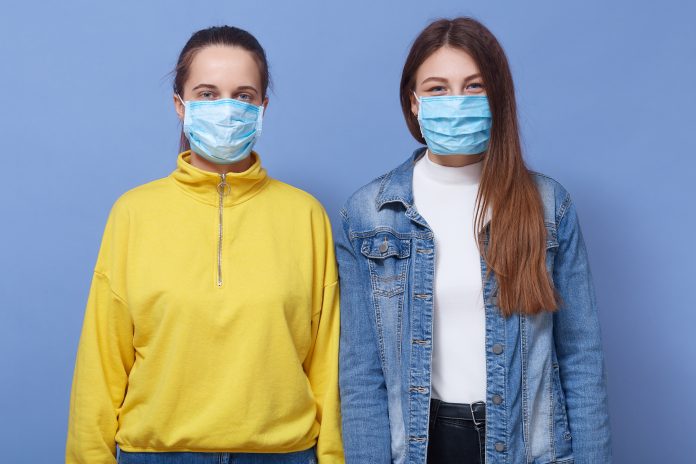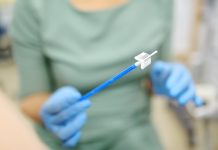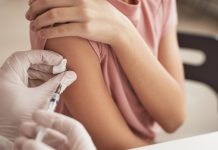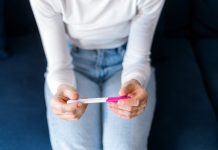Dr Deborah Lee, Dr Fox Online Pharmacy, addresses a variety of concerns related to coronavirus and women’s health from contraception and pregnancy to menopause, highlighting why this virus affects men and women differently
The coronavirus pandemic has changed our lives beyond recognition. Suddenly millions are out of work, children are being home-schooled, the government is having to dig deep in its pockets, transport services are fragmented – And we’ve all run out of toilet roll!
Did you know that the coronavirus affects men and women differently? Why should this be? How is the coronavirus affecting women’s lives? What’s happening to Contraception and Sexual Health, Pregnancy and Menopause services, during this difficult time?
Read on and find out.
Women are less likely to die from coronavirus than men
On March 14th 2020, The Lancet reported that although the numbers of COVID-19 infections in men and women were similar, women were less likely to die from the disease.
The Chinese Centre for Disease Control and Prevention (CCDC) published data from the initial outbreak of COVID-19 in Wuhan, China. They reported a mortality rate in men of 2.8% and 1.7% in women.
The authors suggest that the difference may be due to the fact women tend to have a stronger immune response to infection and because men in China tend to be much more likely to suffer from obesity, diabetes and to smoke.
Women are more likely to get coronavirus infection
Women are more often involved in providing healthcare than men. Across the world, female doctors, nurses and healthcare workers outnumber males.
- In the USA, 86% of nurses are female, and in Europe, this is 84%.
- In Europe 54% of doctors are female. In the USA this is slightly lower a 46%.
A 2019 WHO gender equity report from 104 countries, reported that 70% of health and social care is provided by women. They also earn around 11% less than their male counterparts.
A disproportionate number of women are being exposed to COVID-19.
Women more often shoulder the burden of care
The International Labour Organisation (ILO) report in June 2018, warned there will be a crisis in global healthcare, precisely because the burden of care falls too often on women. 76.2% of unpaid care work is undertaken by women, who do three times more than men. In Asia, this is a four-fold increase. Meanwhile, the demands for health and social care are continually rising, and without adequate governmental policies in place.
The highest risk group of unpaid workers are women with children under the age of 6, of whom, only 47.6% were in paid work. The current COVID-19 pandemic now brings additional pressures for women, who are caring for families, and elderly relatives, in the face of school closures, and with the additional pressures of self-isolation.
In the household, it’s often women who are charged with the task of cleaning, washing, nursing, keeping children out of the way, cooking and feeding the family. Female healthcare workers, for example, are now in an impossible position, with few options for childcare, and the stress of high-risk work on the front line. For women, the COVID-19 outbreak will bring considerable additional stress.
Women’s health during the COVID-19 pandemic
Even before the start of the coronavirus pandemic, women were reporting difficulty obtaining their contraception and HRT. Now, with many clinics closed and GP appointments in short supply, women need to know how to access the care they need.
There are 3 main areas of women’s health consider – Contraception and Sexual Health, Pregnancy, and Menopause.
Contraceptive advice during the COVID-19 pandemic
The Faculty of Sexual and Reproductive Health issues evidence-based recommendations for contraceptive care. In March 2020, they published new guidance about the safe provision of contraception during the COVID-19 pandemic.
These recommendations, summarised below, are very welcome. For the first time, telephone/ video consulting for contraception will now be possible. Slightly different options will be suggested to first time users. Some long-acting contraceptive methods can be left in place for longer.
The key issue is not to run out of pills! – Think ahead. If needed, you can now purchase a range of contraceptive pills online. However, take care to always choose a trusted site.
For women who are already established contraception users
Combined Contraceptive Pill (COC) – For current COC users, a further 6-month supply may be issued without rechecking blood pressure, so long as a complete medical history has been documented at the last visit, there are no new contraindications and no change in your medical history. The risks of an unplanned pregnancy outweigh the risk of continuing to take the pill.
Progestogen-only pill (POP) – For current POP users, you may now be given a 12-month supply at any one time.
Depo Provera – For current users, when your next injection is due, the Faculty recommends that to avoid face to face consultation, you should consider switching to the POP. If you start POP before 14 weeks after your last injection there is no need for extra precautions. You must check you are not taking any enzyme-inducing drugs, as these reduce the contraceptive efficacy of the POP, so do check this with your provider.
Sayana Press – For current users, a 12-month supply with the required injection equipment can be issued so you can self-inject at home.
Nexplanon – For current users, this has a 3-year license but may now be left for 4 years. There are likely to be very few pregnancies in the 4th year of use. If concerned, you can take the POP at the same time.
Levonorgestrel-US (Mirena IUS) – For current users, this has a 5 -year license, but it may now be left in place for 6 years. The risk of pregnancy during the 6th year is very low. You can also take POP for year 6 if you want some added security.
Please take note, however, that the 5-year rule is unchanged for Mirena IUS users who are using this as part of an HRT regime. You must still have the IUS changed after 5 years, or you could swap onto continuous combined HRT.
Copper IUD – There’s no change to the advice that a copper IUD inserted in a woman aged over 40, can be left in place up to age 55. However, the new guidance states that for younger women, a copper IUD with a 10-year license may now be left in-situ for 12 years.
Women wishing to start on contraception for the first time
Traditionally, women were often advised to start oral contraception with an estrogen-containing, combined pill (COC). However, the new guidance recommends women are now offered the progesterone-only pill (POP) first line, via a telephone consultation, instead.
If there are reasons why a COC is preferable, the pill may be offered after a teleconsultation, but a blood pressure check must be obtained.
Emergency contraception
Emergency contraception is a very effective way to prevent an unplanned pregnancy after unprotected sex.
The emergency IUD (Coil) – Having a copper IUD inserted, is still the most effective way to prevent an unplanned pregnancy and should still be offered as the first choice. This is safe to use in young women and in women who have not yet had a pregnancy. Contact your local clinic without delay – this remains an option despite COVID-19.
A copper IUD can be fitted up to 5 days after the earliest date of ovulation and will prevent almost 100% of pregnancies from any unprotected sex before this time in the cycle.
Emergency contraception pills – (“the morning-after pill’) – If you decide you don’t want an emergency IUD, the most appropriate oral form of emergency contraception should be prescribed and collected without delay.
Although you can get emergency contraception in the post, Levonelle must be taken as soon as possible after unprotected sex, so there should be no postal delay. ellaOne works the same whenever it is taken so long as this is within 5 days of unprotected sex.
The Faculty of Sexual and Reproductive Health (FSRH), The National Institute of Health and Care Excellence (NICE), and The British Pregnancy Advisory Service (BPAS), all recommend having a supply of emergency contraception at home, to keep in reserve, just in case.
A 3 month supply of POP should be issued with each EC prescription, with instructions on when to take it.
Sexual health advice during the COVID-19 pandemic
Owing to the COVID-19 outbreak, arrangements are changing about how you access the sexual health clinic.
The British Association of Sexual Health & HIV (BASSH) issued a statement on 20th March 2020 about the provision of sexual health services in the current COIVID-19 outbreak. To comply with the government directive of minimal face to face contact, sexual health clinics are also changing the way they work.
As a result, you should look at the website for your local clinic. Then telephone the clinic as directed, and your problem will be triaged on the phone. Where possible you will be offered a telephone appointment, and testing kits and other supplies sent in the post.
Only patients with life-threatening or life-shortening conditions, unbearable symptoms or those who pose a significant risk to public health will be invited for a face to face consultation. You can purchase, for example, chlamydia testing kits from online pharmacies, but always use a trusted site.
Pregnancy advice during the COVID-19 pandemic
The Royal College of Obstetrician’s (RCOG) issued reassuring guidance about COVID-19 and pregnancy on 26th March 2020.
Here are some key facts
- There’s no evidence that COVID-19 infection when you are pregnant can be transmitted to your unborn baby. If you have a cough and a temperature you should ring NHS 111, or contact your local maternity unit.
- Pregnancy itself does not seem to increase your risk of having more serious complications from COVID-19.
- If you become infected with COVID-19, there does not seem to be any increase in miscarriage.
- However, pregnant women are regarded as a vulnerable group because the virus has not been around for long and data is limited. If you are over 28 weeks pregnant and work in the healthcare sector having face-to-face contact with patients, you should avoid roles with direct patient contact.
- You are strongly advised to attend your antenatal appointments as normal unless you have symptoms of the coronavirus, in which case you must inform your midwife.
- You should wash your hands regularly, self-isolate and work from home where possible.
- Even if you do develop an infection with COVID-19 you can still have a normal delivery and plan to breastfeed.
Menopause and HRT advice during the COVID-19 pandemic
The British Menopause Society issued guidance on 25th March 2020 for women requesting HRT during the coronavirus pandemic. They acknowledge the difficulty women are having right now in obtaining HRT prescriptions.
GP’s are under pressure dealing with serious and life-threatening situations.
HRT is an effective way of controlling menopausal symptoms and women are under additional pressure just now.
The BMS supports telephone or video consultations for HRT prescribing, to avoid face to face appointments, and stresses the need for easy access repeat prescribing of HRT for women who are not having any problems.
For information, Women’s Health Concern, have some excellent Factsheets on all aspects of menopause, including understanding the past HRT controversy, and also presenting information about HRT, alternative and complementary therapies, and cognitive behavioural therapy (CBT).
For more information – see Menopause Matters.
Changes to NHS breast screening and cervical screening services during the COVID-19 pandemic
In line with government recommendations, many Trusts are postponing routine breast and cervical screening appointments. You should receive a letter informing you of this. The screening will recommence after the pandemic has slowed, as soon as possible. Do not visit the hospital or clinic as you will have a wasted journey.
You must still contact your GP if you have any new symptoms, for example, a new breast lump, or bleeding between your periods/after sex.
Take care of yourself during the COVID-19 pandemic
The experience of the first 191 patients with COVID-19, admitted in Wuhan, was described in a publication in The Lancet on 11th March 2020. Of these 137 went home, and 54 died. 48% had other medical conditions, the most common being; high blood pressure, diabetes and coronary artery disease. Older age increased the risk of death.
Now is the time to start taking care of yourself.
- Have you had your blood pressure checked? You can check your blood pressure at home.
- Have you worked out our Body Mass Index (BMI)? Do you need to lose weight?
- Have you got angina, or have you had a heart attack? Do you know the risk factors for coronary artery disease?
- Have you considered stopping smoking?
What more can you do over the next 3 months to improve your health?
Your health – your diet
One way you can do this is to make sensible changes to your diet. Take a look at this 2018 paper ‘The Hidden Dangers of Fast and Processed Foods,’ by Dr Joel Fuhrman.
There is a lot of information about obesity, healthy eating, diet and weight loss at NHS Choices. Why not find out more, for example, about the health benefits of the Mediterranean Diet?
Take care of your relationship during the COVID-19 pandemic
Living together in self-isolation due to COVID-19 will present big challenges for many couples. Some have suggested that women invented the coronavirus to get men to stay home, stop going to the football and start sharing the housework!
If, however, your relationship wasn’t good before this started, things may become pretty unbearable. For some women it may be so serious it’s a matter of life and death.
Emotional Abuse
Ask yourself, is this just a difficult time, or is this emotional abuse?
You should not be in a position where you feel you are being criticised, made fun of, threatened or intimidated. Your partner should not be exerting control over you, for example controlling how you spend your time or how you spend your money. This is emotional abuse.
If you feel you may be suffering any emotional abuse, you must seek help. Contact Relate. They offer counselling and support using telephone and web-based consultations.
Physical Abuse
If you are suffering physical or domestic abuse, don’t suffer in silence. Contact Women’ Aid.
Final thoughts
Women need to stay safe during this unprecedented time. Think ahead, use the resources available and look after yourself. There will be a life after this outbreak has settled, and we all need it to be a good one!











